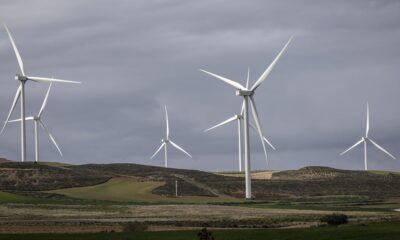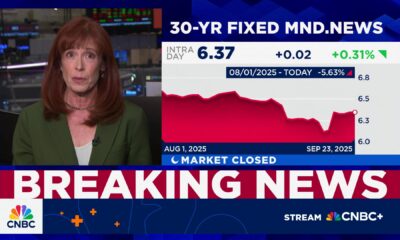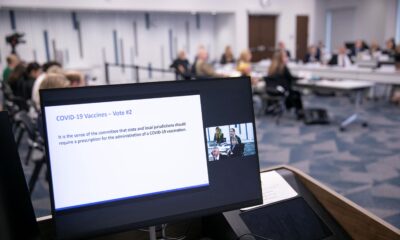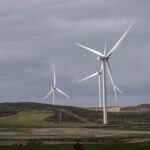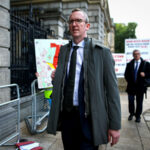Business
European defence stocks buoyed by Trump comments
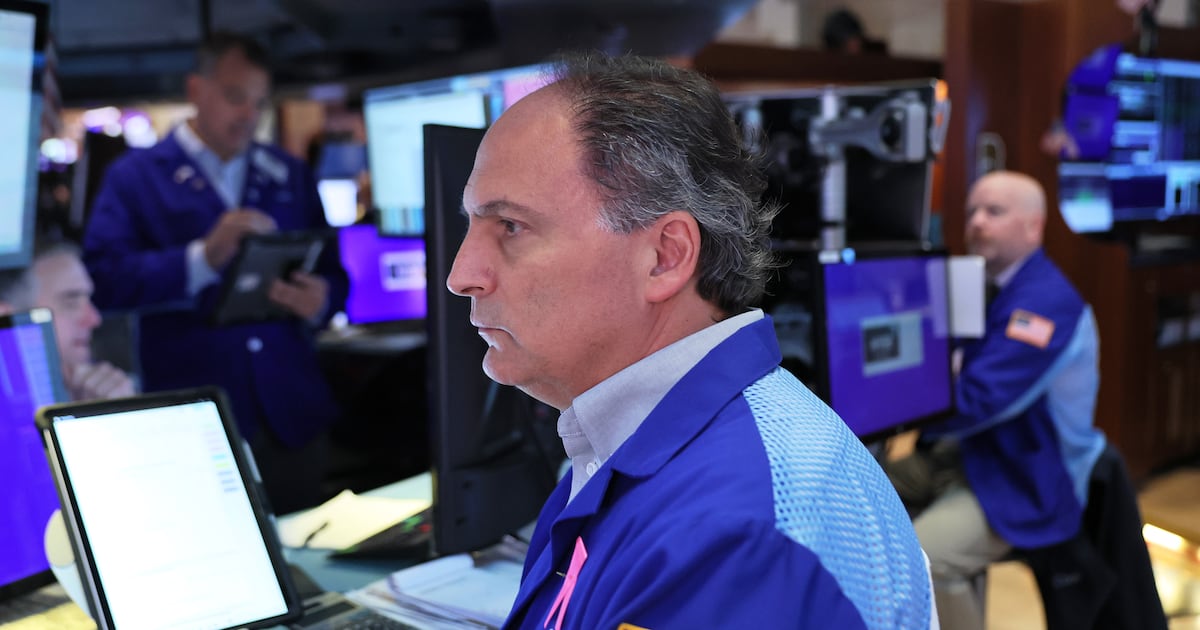
Read more on post.
MSCI’s global equities gauge stayed close to flat on Wednesday while the dollar rose and gold prices dipped as investors digested cautious comments from Federal Reserve chair Jerome Powell about when the central bank might next cut US interest rates.
In his first remarks since the Fed meeting ended with a rate cut last week, Powell on Tuesday underlined the need for policymakers to balance the competing risks of high inflation and a weaker jobs market in its next monetary policy decisions.
Dublin
Shares in Kerry Group rose 1.4 per cent to €76.65 after the food ingredients giant announced it was opening a new biotechnology centre in Leipzig, Germany, where it will look to develop its next generation of nutritional products.
After jumping by as much as 13 per cent in the previous session, Kingspan’s shares fell back by 1.5 per cent to €70.25
The insulation manufacturer is eyeing up a possibility of floating its advanced building systems unit Advnsys, which is focused on the global data centres boom and could to be worth €6 billion.
In an otherwise subdued day’s trading, Iseq heavyweight Ryanair ended the session marginally down at €23.27.
Europe
European defence shares rose on Wednesday following comments by US president Donald Trump signalling stronger support for Ukraine’s territorial recovery.
Trump expressed confidence that Ukraine could reclaim all territories lost to Russia, including Crimea and parts of Donetsk and Luhansk, with backing from Nato and the European Union.
This marked a significant rhetorical shift from his earlier position, which had been more cautious regarding territorial concessions.
Shares of Saab, Hensoldt, Renk Group, Leonardo, Thales, Rheinmetall, Dassault Aviation, QinetiQ, and BAE Systems were up between 1.6 per cent and 4.7 per cent.
The European aerospace and defence index climbed by 0.8 per cent, contrasting with a broader downturn in the Stoxx 600 index, which slipped by 0.45 per cent.
Trump also criticised Russia’s military capabilities, describing them as a “paper tiger,” and underscored Nato’s crucial role in deterring Russian aggression.
London
Britain’s FTSE 100 closed higher on Wednesday, led by miners and defence stocks, while investors assessed corporate updates and measured comments by Federal Reserve Chair Jerome Powell.
The benchmark FTSE 100 reversed earlier losses to gain 0.3 per cent. Antofagasta gained the most in the FTSE 100 with a 9.3 per cent rise, while Glencore added nearly 3 per cent.
Miner Anglo American rose 4.7 per cent after Angola’s state diamond firm Endiama bid for a minority stake in its diamond unit – De Beers.
The aerospace and defence sector rose 1.3 per cent, mirroring gains in European peers after US president Donald Trump, in an abrupt rhetorical shift, said he believed Ukraine could retake all of its territory now occupied by Russia.
Babcock International Group was among the top FTSE gainers, up 4.3 per cent.
New York
Wall Street’s main indexes were subdued in choppy trading on Wednesday as traders assessed measured comments from US Federal Reserve chair Jerome Powell and awaited key economic data due later in the week.
Although the recent numbers point to a resilient economy, commentary from Fed officials has injected some wariness, especially about the labour market, prompting investors to tread carefully.
Powell sounded a cautious note on Tuesday when he said asset prices appeared fairly highly valued.
Photoshop-maker Adobe fell 3.1 per cent after Morgan Stanley downgraded it to “equal weight” from “overweight”.
Declines in technology stocks also weighed on the Nasdaq.
Consumer discretionary added 0.8 per cent on the S&P 500, boosted by gains in Tesla and Amazon, which were up 2.8 per cent and 0.7 per cent, respectively. Amazon advanced after Wells Fargo upgraded it to “overweight” from “equal weight”.
Energy companies rose 1.5 per cent, while a 1 per cent fall in Alphabet led communication services 0.4 per cent lower.
Gains in banks such as JPMorgan, which was up 1.1 per cent, drove the Dow higher. – Additional reporting by Reuters
Breaking News
Father urges State to help him get toddler daughter back to Ireland
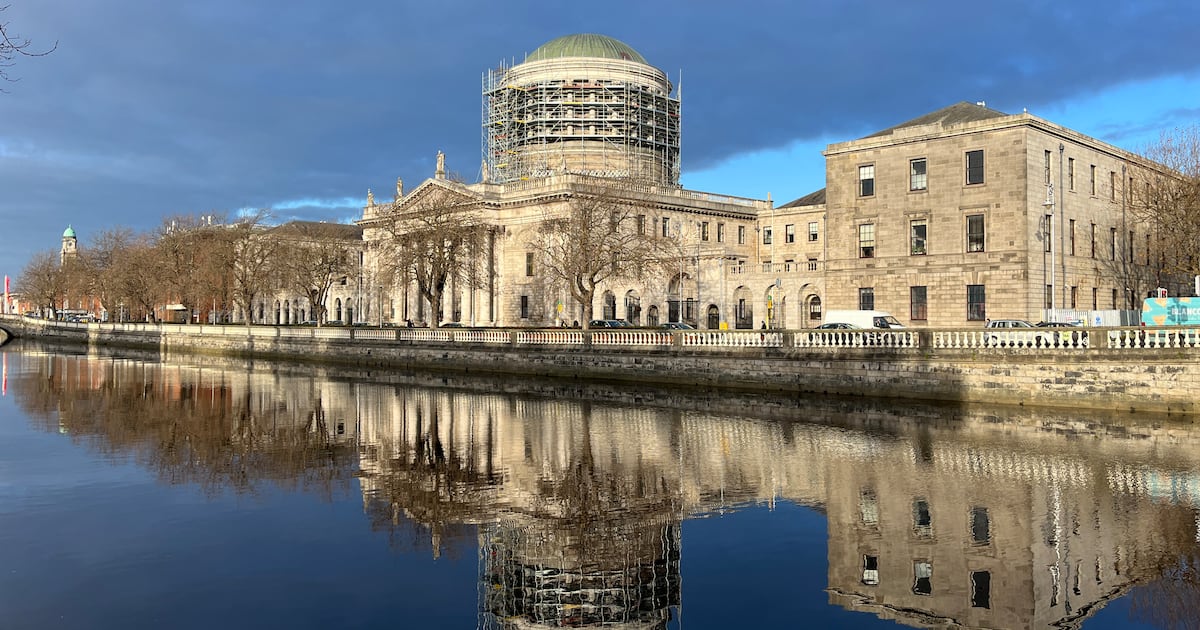
Read more on post .
In what a judge described as a “heart-rending” case, a father wants orders directing the State to take immediate steps for the return to Ireland of his child who he has not seen since early this year.
The toddler was taken by her mother to her native Poland without her father’s consent and remains there after a Polish court directed her return to Ireland.
The parents are in dispute over the mother’s claim the child will receive better treatment in Poland for her medical condition.
On Wednesday, the man told the High Court’s Mr Justice Micheál P O’Higgins, who was dealing with the court’s vacation list, he has not seen his daughter since he saw her in a Polish court last January. He is “the only one fighting for her rights”, he said.
Paul McCarthy SC, for various State defendants, said this is “a human story” and there was no lack of sympathy from the defendants for the predicament of the man and his child.
It is also a legal matter and the man has no cause of action against the State parties, counsel said. The State is “doing all it can” but there were legal and diplomatic limits on what it can do.
Mr Justice O’Higgins said it was a “heart-rending” matter and the court required further materials and legal documents and submissions before deciding how to proceed.
He made directions for exchange of those documents and returned the man’s application for various orders and declarations to October 8th.
He adjourned to the same date the defendants’ application to strike out the man’s proceedings on grounds they disclose no cause of action and are bound to fail.
The judge made orders preventing identification of the parties.
Earlier, he was told that a Polish ombudsman has sought to bring an appeal there concerning the court orders for return of the child.
The man said he wanted orders for the Irish Government to challenge Poland about the failure to return his child to Ireland. He has been left on his own and has “no time for legal gymnastics”, he said.
Breaking News
Hunt for childcare a desperate gambit for parents, campaign group hears
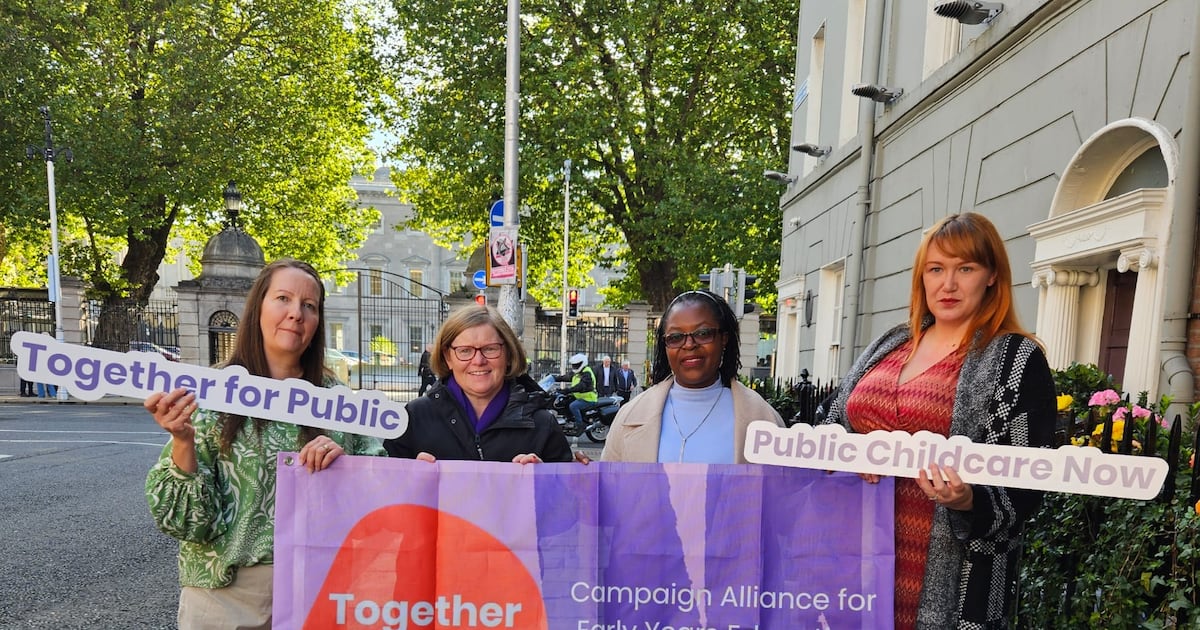
Read more on post .
A shortage of childcare options is leaving many desperate parents with no option but to treat creche places the way they do city centre car parking spaces, a parent of two young children has said.
Jessica Lee, an early years education lecturer at Technological University Dublin who is currently on maternity leave, was speaking at a meeting of a childcare campaign group in Dublin on Wednesday.
The Together for Public alliance is led by the National Women’s Council and is calling on the Government to roll out public early childhood education and care services in the forthcoming budget.
“The way childcare is being treated at the moment is like parking spaces for children,” Ms Lee told the event in Dublin on Wednesday morning.
“It’s like you drive around until you find an empty space to park your child, to shove your child into, to keep them alive until you come home at the end of the day.”
When Ms Lee’s three-year-old, Henry, suddenly lost his place in a childcare setting last year, it caused the family huge stress, she said, because of the lack of alternatives.
Now, after the arrival of Alice (aged three months), there is the pending problem of paying for childcare for two.
“My son isn’t at the point of starting primary school yet and so we’re going to be paying around €1,200 to €1,500 a month … that’s with the subsidies applied. I don’t know how we’re going to manage it, but we have to because we both have to work. The irony in my case is it’s because I want to go back and train early childhood educators.”
Director of the National Women’s Council, Orla O’Connor, said Ms Lee’s experience highlights the shortcomings in a system that is failing the majority of its stakeholders.
“It’s not working,” she said. “It’s not working for children, for women, for parents, for educators. Providers and families are really being pushed to the brink, and they can’t wait any longer to have real solutions. That’s why we’re saying that with Budget ’26 the Government has an opportunity to signal a new approach, and key to that is what they’ve already committed to in the programme for government.”
She said the alliance, which includes more than 40 civil society organisations, is calling for an additional €30 million to provide 3,000 extra places next year as well as funding to continue the process of reducing fees, investment in infrastructure, ring-fenced money for improved pay and a greater targeted supports for accessibility and inclusivity programmes.
“We met with the Minister [for Children], Norma Foley and she said she is committed to what’s in the programme for government,” said Ms O’Connor, “but those were words, and what we need to see now is action in this budget.”
Wednesday’s meeting at Buswell’s Hotel in Dublin 2 heard from a number of other speakers with experience of the sector, including Minna Murphy, originally from Finland, who runs two services in Co Cork and said many small providers like her own are struggling.
[ Free childcare is key in addressing child poverty, advocacy group saysOpens in new window ]
After 10 years of running one preschool, she said, “I had an opportunity to expand, so I opened my second preschool, and I started an after-school, the first ever after-school service in our village. Now, I’m in a position to pay myself a managerial salary, and I am in a position to pay higher salaries for my staff. I wasn’t able to do that when I was just running one service.”
Louise Bayliss, head of social justice at St Vincent de Paul, said adequate provision of early-years services was key to helping families, particularly those with one parent, out of poverty.
“Tackling child poverty and increasing their wellbeing is not only about income transfers,” she said, “it is also about ensuring access to high-quality, universal public services. And early-years services are absolutely key to that.”
Business
State awards 23 renewables projects electricity contracts
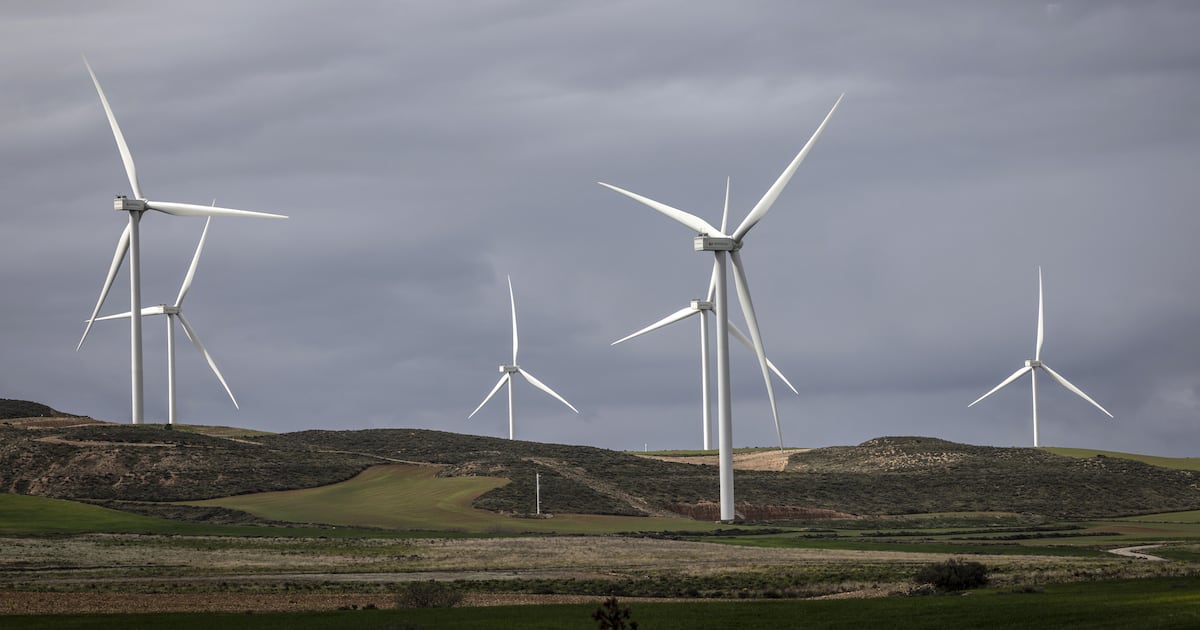
Read more on post.
Five onshore wind farms and 18 solar parks are the latest renewable energy projects to win State contracts to supply clean electricity.
The 23 projects have the capacity to provide just over 1000 megawatts (MW) of electricity or enough to meet the needs of 350,000 households.
The contracts, awarded after an auction initially involving 40 bidders, set a price of €98.81 per megawatt hour (MWh) of electricity, lower than the current wholesale price of around €123.
For households, that works out at just under 10 cents per unit of electricity, although the price charged by suppliers adds various standing charges and levies to that base cost.
The contracts apply for 15 years, with the suppliers receiving a top-up from the State any time they receive lower than the auction price when they sell power on the open market and paying back to the State when they get a higher price.
The projects already have planning permission and agreements that they can connect to the national electricity grid, and under the terms of the contract, they must be operational by the end of 2030 at the latest.
They are also required to pay into community benefit funds at a minimum rate of €2 per MWh.
Minister for Climate, Energy and the Environment Darragh O’Brien said this would put around €3 million per year into local communities.
Mr O’Brien welcomed the results of the auction saying: “We are not only reducing carbon emissions and dependence on imported fuels but also generating investment and jobs in communities across the country.”
The wind projects are in counties Mayo, Cork, Waterford, Wicklow and Tipperary, while the solar projects are clustered mainly in the east, south-east and midlands.
This is the fifth time an auction under the Renewable Electricity Support Scheme (RESS) has been completed, and a sixth is planned for next year.
A separate ORESS was run for offshore wind projects and a second ORESS is also planned.
While the extra 1,000MW (1GW) of power will be an important addition to renewable energy supply when it comes on stream, concerns remain over Ireland’s ability to meet its 2030 renewable energy and emission reduction targets.
Under the Climate Action Plan, the country aims to have 9GW of onshore wind capacity installed, 8GW of solar and 5GW of offshore wind.
Currently there is about 5GW of onshore wind, 1.75GW of solar and no offshore.
Solar projects have become increasingly prominent in the last few auctions and in RESS 5 the successful projects have capacity to generate 860MW of electricity compared to 219MW from wind.
It is understood that wind developers are increasingly looking to private corporate power purchase agreements under which they supply directly to large industries.
-
Breaking News1 day ago
Barack Obama to be conferred with freedom of Dublin at ceremony on Thursday
-
Culture1 day ago
Taylor Swift’s new cinema outing generates more than €12million in just 24 hours
-
Culture1 day ago
Milan Fashion Week 2025: Unmissable shows and Giorgio Armani in mind
-
Politics1 day ago
European Parliament snubs Orbán with vote to shield Italian MEP from Hungarian arrest
-
Travel & Lifestyle2 days ago
The Best Way to See Rome? On a Running Tour at Sunrise
-
Business8 hours ago
Households to be offered energy bill changes, but unlikely to lead to savings
-
Opinion2 days ago
Saving the best for last: How the Making In symposium left an indelible mark
-
Culture2 days ago
Marvel stars Mark Ruffalo and Pedro Pascal stand up for Jimmy Kimmel as Disney boycott intensifies


